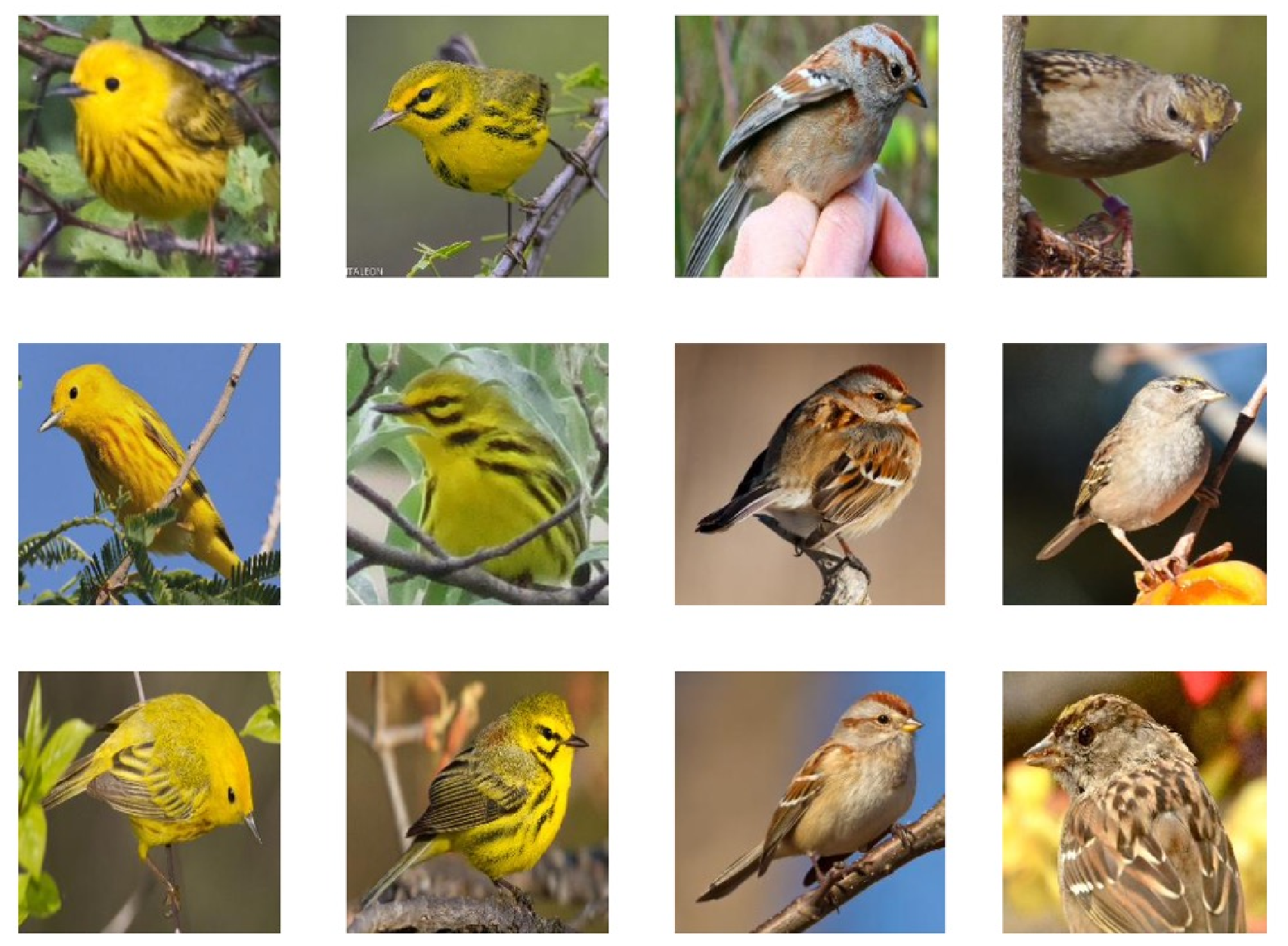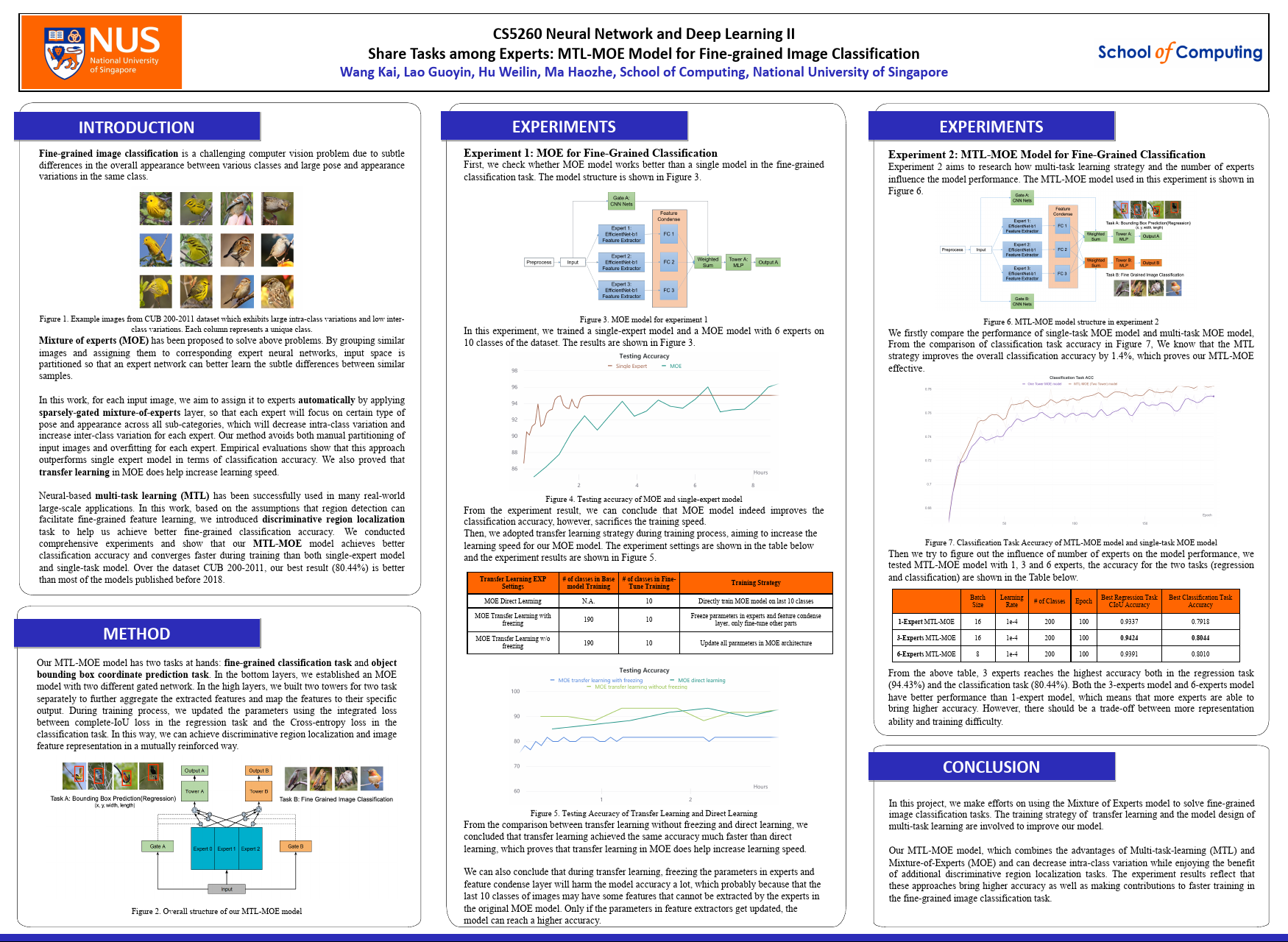Fine-grained image classification is a challenging computer vision problem due to subtle differences in the overall appearance between various classes and large pose and appearance variations in the same class.
Figure 1. Example images from CUB 200-2011 dataset which exhibits large intra-class variations and low inter-class variations. Each column represents a unique class.
Mixture of experts (MOE) has been proposed to solve above problems. By grouping similar images and assigning them to corresponding expert neural networks, input space is partitioned so that an expert network can better learn the subtle differences between similar samples.
In this work, for each input image, we aim to assign it to experts automatically by applying sparsely-gated mixture-of-experts layer, so that each expert will focus on certain type of pose and appearance across all sub-categories, which will decrease intra-class variation and increase inter-class variation for each expert. Our method avoids both manual partitioning of input images and overfitting for each expert. Empirical evaluations show that this approach outperforms single expert model in terms of classification accuracy. We also proved that transfer learning in MOE does help increase learning speed.
Neural-based multi-task learning (MTL) has been successfully used in many real-world large-scale applications. In this work, based on the assumptions that region detection can facilitate fine-grained feature learning, we introduced discriminative region localization task to help us achieve better fine-grained classification accuracy. We conducted comprehensive experiments and show that our MTL-MOE model achieves better classification accuracy and converges faster during training than both single-expert model and single-task model. Over the dataset CUB 200-2011, our best result (80.44%) is better than most of the models published before 2018.
Wang Kai, Lao Guoyin, Hu Weilin, Ma Haozhe
Projects for National University of Singapore, School of Computing, CS5260 Neural Networks and Deep Learning II Module.

